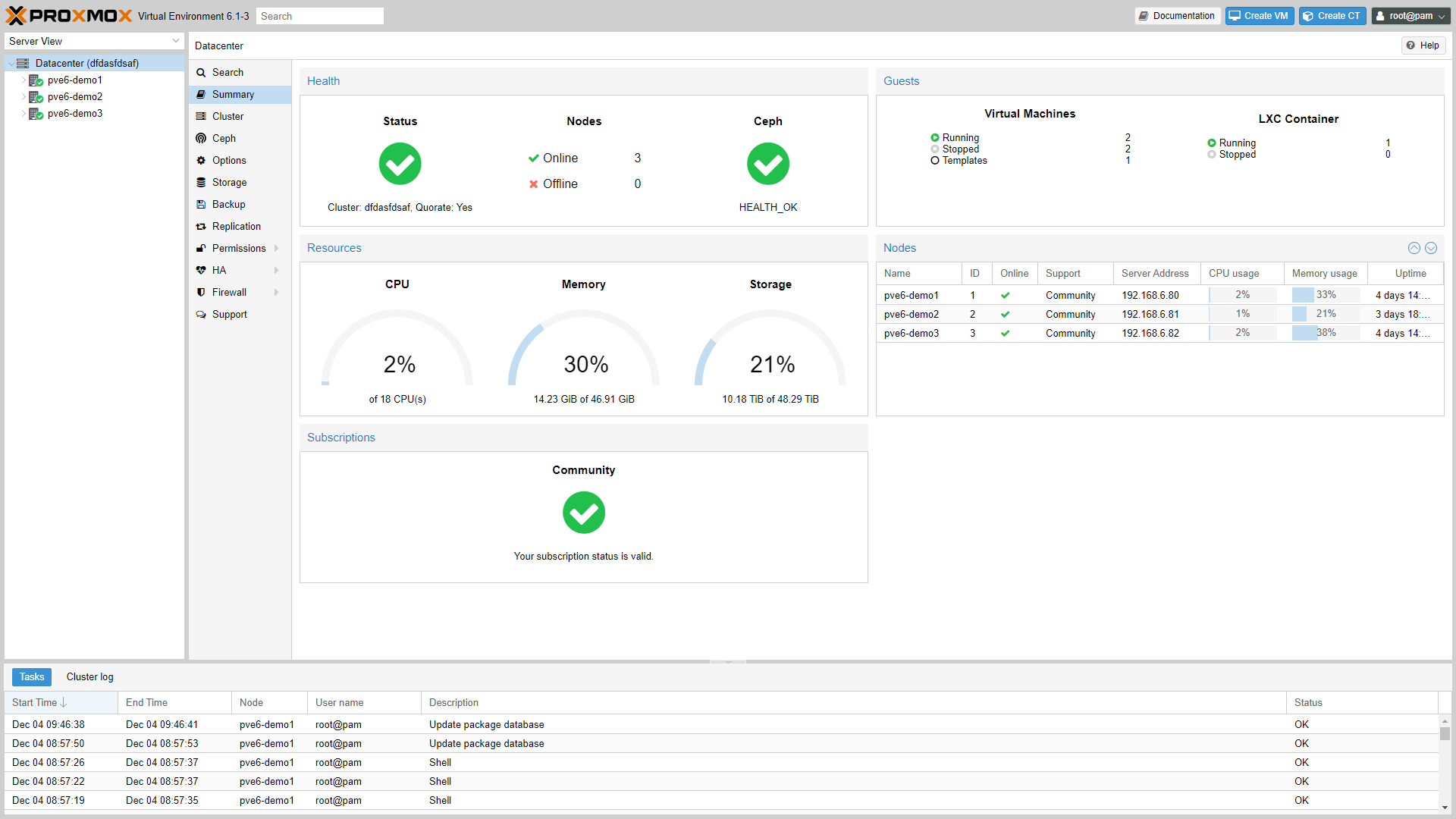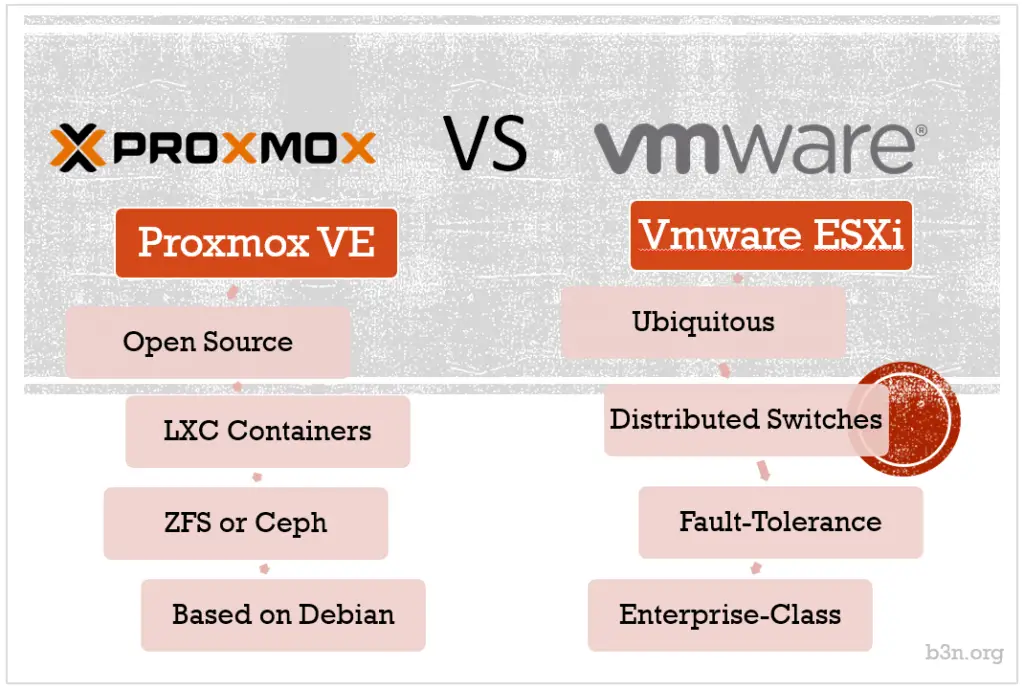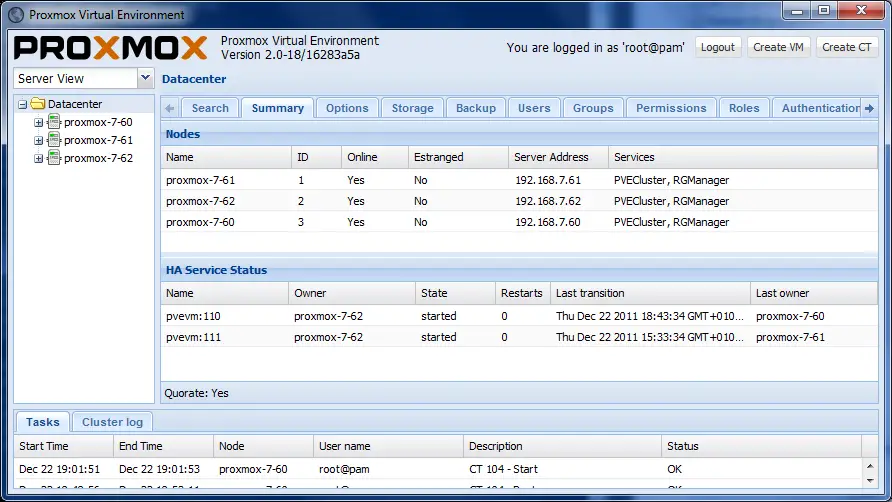Proxmox VE vs. OpenVZ: Virtualization Solutions

Proxmox VE and OpenVZ are two popular open-source virtualization solutions that allow users to run multiple isolated virtual machines (VMs) on a single physical server. Both solutions have their own strengths and weaknesses, so it is important to understand the differences between them before choosing one.

Proxmox VE

Proxmox VE is a complete virtualization management platform that includes a hypervisor, a web-based management interface, and a range of tools for managing virtual machines. Proxmox VE supports both KVM and LXC virtualization technologies, giving users the flexibility to choose the best option for their needs.
Advantages of Proxmox VE:
- Supports both KVM and LXC virtualization technologies
- Web-based management interface
- Integrated backup and restore functionality
- Enterprise-grade support
Drawbacks of Proxmox VE:
- Can be more complex to set up and manage than OpenVZ
OpenVZ
OpenVZ is a container-based virtualization solution that shares the kernel of the host operating system with the guest VMs. This makes OpenVZ more lightweight and efficient than Proxmox VE, but it also limits the isolation and flexibility of the guest VMs.
Advantages of OpenVZ:
- Lightweight and efficient
- Less complex to set up and manage than Proxmox VE
- Ideal for small-scale virtualization projects
Drawbacks of OpenVZ:
- Limited isolation and flexibility
- Only supports Linux guest VMs
Conclusion
Proxmox VE and OpenVZ are both powerful virtualization solutions with their own advantages and drawbacks. Proxmox VE is a more complete solution that is ideal for large-scale virtualization projects, while OpenVZ is a more lightweight and efficient solution that is ideal for smaller-scale projects or for headless operation of VMs without display. The best choice for you will depend on your specific needs.# Proxmox VE vs. OpenVZ: Virtualization Solutions
Executive Summary
Proxmox VE and OpenVZ are two popular open-source virtualization platforms. Proxmox VE is a complete virtualization solution that includes a hypervisor, a web-based management interface, and a variety of other features. OpenVZ is a container-based virtualization platform that shares the kernel with the host operating system. The comparison table below lists the pros and cons of Proxmox VE vs. OpenVZ.
Introduction
Virtualization is a technology that allows multiple operating systems (OSes) to run on a single physical server. This can improve server utilization, reduce costs, and increase flexibility. Proxmox VE and OpenVZ are two popular virtualization platforms. They are both open-source and offer a variety of features. However, there are also some key differences between the two platforms.
5 Key Differences Between Proxmox VE and OpenVZ
1. Hypervisor
Proxmox VE uses a type-1 hypervisor, also known as a bare-metal hypervisor. This means that Proxmox VE runs directly on the hardware, without the need for an operating system. OpenVZ uses a type-2 hypervisor, also known as a hosted hypervisor. This means that OpenVZ runs on top of an operating system.
2. Containers vs. Virtual Machines
Proxmox VE uses virtual machines (VMs), while OpenVZ uses containers. VMs are isolated from each other, while containers share the kernel with the host operating system.
3. Management
Proxmox VE has a web-based management interface that makes it easy to manage virtual machines. OpenVZ is managed through a command-line interface.
4. Features
Proxmox VE offers a wider range of features than OpenVZ. For example, Proxmox VE supports live migration, clustering, and high availability. OpenVZ does not support these features.
5. Performance
Proxmox VE typically provides better performance than OpenVZ. This is because Proxmox VE uses a type-1 hypervisor, which gives it more direct access to the hardware.
Conclusion
Proxmox VE and OpenVZ are both popular open-source virtualization platforms. They both have their own strengths and weaknesses. Proxmox VE is a good choice for users who need a complete virtualization solution with a wide range of features. OpenVZ is a good choice for users who need a lightweight virtualization solution that is easy to manage.
Keyword Phrase Tags
- Proxmox VE
- OpenVZ
- Virtualization
- Hypervisor
- Containers

Can you please provide me more information on the security features of these two virtualization solutions?
I’m not sure I agree with the author’s assessment of OpenVZ. I’ve found it to be a more stable and reliable solution than Proxmox VE.
Oh, the irony! The author claims that Proxmox VE is more user-friendly, but I’ve found it to be quite the opposite.
So, Proxmox VE is the best virtualization solution out there, huh? I guess I should just throw away all my other options.
I couldn’t help but chuckle at the author’s comparison of Proxmox VE to a Ferrari. I mean, seriously, have they ever even driven a Ferrari?
This is a great article! I’ve been using Proxmox VE for years and I’ve never had any problems with it. It’s a very stable and reliable solution.
I’ve tried both Proxmox VE and OpenVZ and I have to say that I’m not impressed with either one. I’ve found them to be buggy and unreliable.
I disagree with the author’s conclusion that Proxmox VE is the best virtualization solution. I believe that OpenVZ is a better choice because it is more lightweight and efficient.
I’m not sure what the author is trying to say in this article. Can someone please explain it to me in simpler terms?